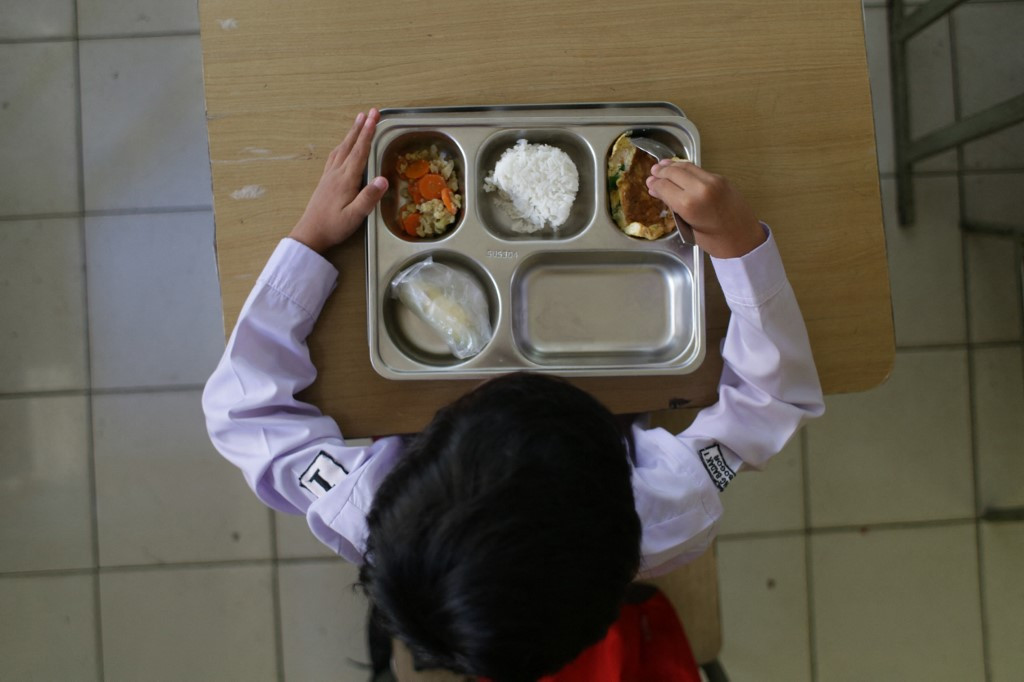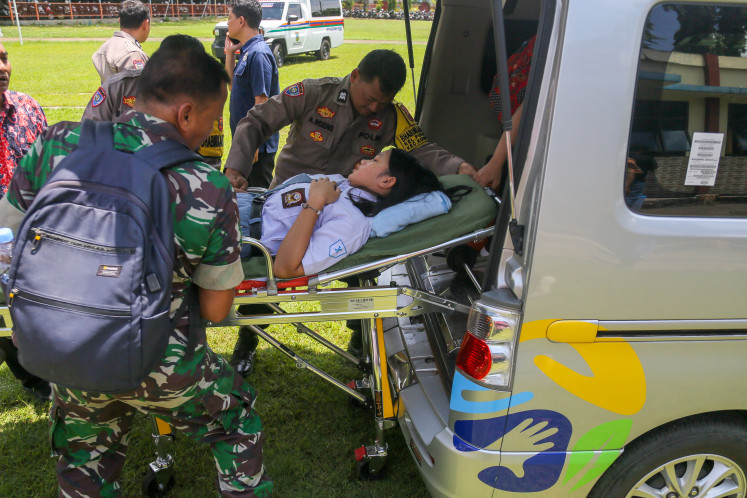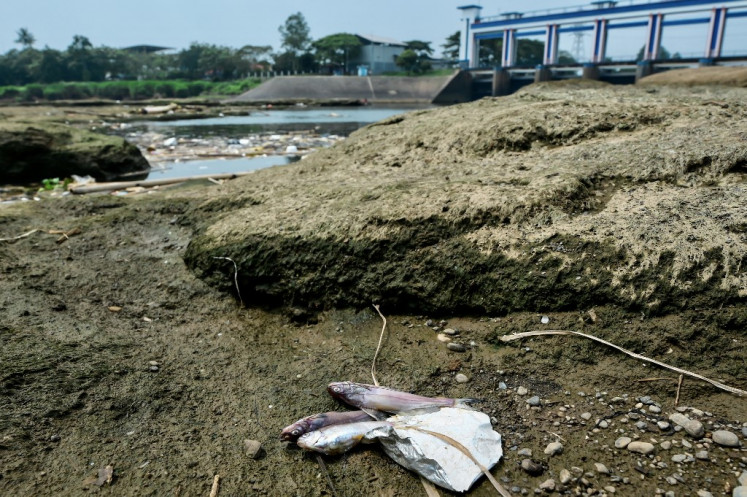Popular Reads
Top Results
Can't find what you're looking for?
View all search resultsPopular Reads
Top Results
Can't find what you're looking for?
View all search resultsMore than 360 hit by food poisoning after eating free school meal in Central Java
Since its launch in January, the free school meals program has been marred by mass food poisoning cases across the country, affecting over 1,000 people.
Change text size
Gift Premium Articles
to Anyone
M
ore than 360 people fell ill in Sragen, Central Java after consuming school lunches, an official said on Thursday, in the largest food poisoning case to hit President Prabowo Subianto's flagship free meals program.
Since its launch in January, the free school meals program has been marred by mass food poisoning cases across the country, affecting over 1,000 people.
Sragen government chief Sigit Pamungkas told Reuters 365 people fell ill and a food sample was being tested in a lab. The government would pay for any medical treatment if needed.
Wizdan Ridho Abimanyu, a ninth grader at Gemolong 1 middle school, told Reuters he was woken at night by sharp pain in his stomach.
He had a headache and diarrhoea, which he deduced had been caused by food poisoning after seeing schoolmates' social media posts complaining the same.
The likely contaminated lunch was turmeric rice, omelette ribbons, fried tempeh, cucumber and lettuce salad, sliced apple and a box of milk, cooked in a central kitchen and distributed to several schools.
"We have asked to temporarily stop the food distribution from that kitchen until the lab results are back," Sigit said.
The National Nutrition Agency, which oversees the program, has raised the standards of kitchen operations and delivery in the aftermath of previous food poisoning cases, its chief Dadan Hindayana told Reuters.
The free meals programme has been rapidly expanded to over 15 million recipients so far. Authorities plan to reach 83 million by year-end, budgeting a total cost of Rp 171 trillion ($10.62 billion) this year.
In a food poisoning case in a city in West Java in May, more than 200 students fell ill and a lab found the food was contaminated with Salmonella and E. coli bacteria, according to media reports.
President Prabowo touted the populist scheme as a solution to the high rates of stunted growth among children, as he carved his way to a landslide election victory last year.
But its rollout since January has stumbled from crisis to crisis, including accusations of nepotism, funding delays, protests and a spate of food poisonings.
Prabowo has lauded the number of illnesses as a positive.
"Indeed there was a poisoning today, around 200 people out of three million," he said in May.
"Over five were hospitalised, so that means the success rate is 99.99 percent. A 99.99 percent success rate in any field is a good thing."











